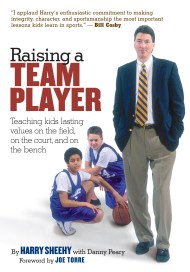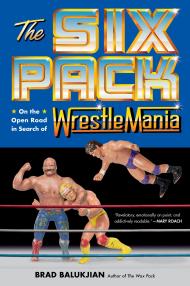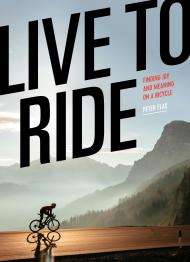Promotion
Use code MOM24 for 20% off site wide + free shipping over $45
Life as Sport
What Top Athletes Can Teach You about How to Win in Life
Contributors
Read by Jonathan Fader
Formats and Prices
Format
Format:
- Audiobook Download (Unabridged)
- ebook $16.99 $21.99 CAD
- Hardcover $36.00 $46.00 CAD
This item is a preorder. Your payment method will be charged immediately, and the product is expected to ship on or around September 20, 2016. This date is subject to change due to shipping delays beyond our control.
Also available from:
In Life as Sport, sport psychologist Dr. Jonathan Fader shares the skills that he teaches professional athletes–to enhance motivation, set productive goals, sharpen routines, manage stress, and clarify thought processes–and applies them to real-world situations. Dr. Fader’s book is the product of thousands of hours of conversations with athletes from various teams and sports: power forwards, tennis phenoms, power-hitting outfielders, and battle-scarred linebackers, as well as hedge-fund managers, entrepreneurs, A-list actors, and dozens of other elite achievers in sports, business, and performing arts. It offers a compendium of stories, theories, and techniques that have been helpful to players, coaches, and executives in professional sports. What emerges is more than just a set of techniques, but a life philosophy that anyone can live by: an internal code to help translate our talent and drive toward the highest plateaus of performance.
Dr. Fader designs his strategies to be studied, learned, practiced, and improved. He offers his readers the same exercises that he uses in every session with a professional athlete. These exercises help you to get truly engaged, whether you are designing a new business plan, working to inspire a team or individual, or even falling in love. This is what it means to truly live life as sport–to approach it with the same immediacy, wonder, and engagement that athletes feel at their peak during a game. Life as Sport helps you to pursue your own goals with an enriched intensity — not only because it creates new potential, but also because it helps you unlock what was always there to begin with.
Genre:
- On Sale
- Sep 20, 2016
- Publisher
- Hachette Audio
- ISBN-13
- 9781478944799
Newsletter Signup
By clicking ‘Sign Up,’ I acknowledge that I have read and agree to Hachette Book Group’s Privacy Policy and Terms of Use







